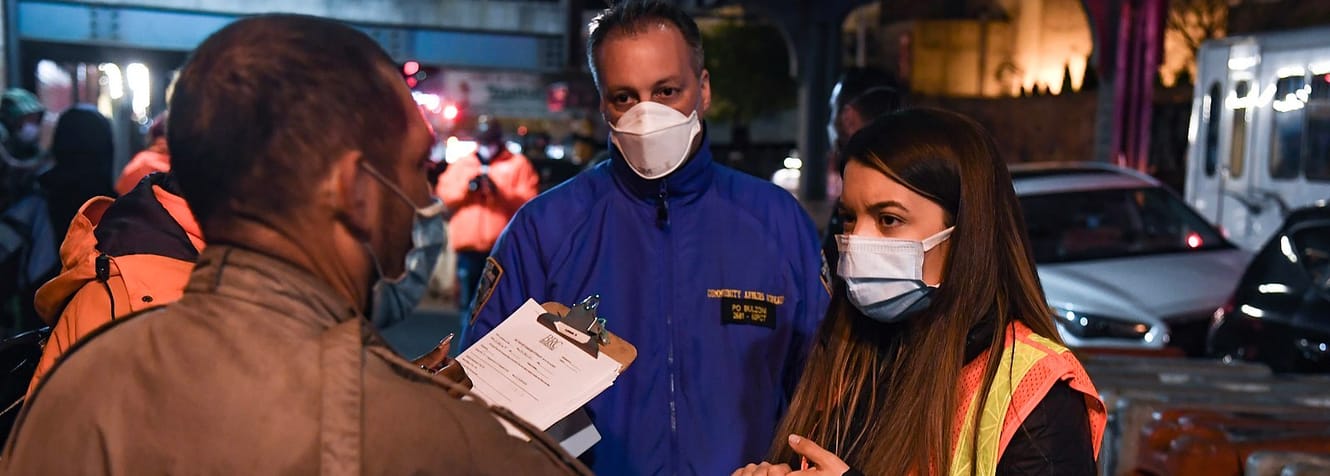Alternative Emergency Response: Innovative Approaches to Public Safety
- Issue Areas
- Health and well-being Justice and public safety
- Outcomes
- Supportive neighborhoods

About this Sprint
- Even when a police response is unneeded, police officers are typically dispatched in response to 911 calls, taxing already overburdened police forces and, in some cases, endangering the safety of individuals in need of support
- Alternative emergency response programs, like CAHOOTS in Eugene, OR, field teams trained to address residents' mental and behavioral health needs and connect them to community-based supports
- The Alternative Emergency Response Sprint helped cities and community partners learn from peer cities committed to implementing programming to improve emergency response and public safety and advance the implementation of such models
What you'll learn
- Have a firm understanding of the history, available research, and research needs around behavioral health, addiction, poverty, homelessness, and equity in public safety and alternatives to police response for mobile crises
- Be able to identify and analyze dispatch data to better understand how policing affects residents in their city
- Be able to build a working group to explore alternative emergency response models, including non-law enforcement mobile crisis program
- Understand the necessary steps to develop and modify public safety infrastructure to support alternative teams like mobile crisis teams as first responders
- Understand the necessary concrete next steps to implement alternative emergency response models including mobile crisis response
Sprint partners
- Lead Partner: White Bird Clinic
Background on community policing, the impact of aggressive policing tactics, and models of public safety that reduce police involvement
Resources:
US Department of Health and Human Services, Safe Policing for Safe Communities Report, specifically section 3 on Behavioral Health Crisis Care.
Alexander, Why Police Should Embrace Communities, Not Shut Them Out
Cullors and Black, Community-Based Emergency First Responders Explained
Examples from Portland, OR and Denver, CO of how racial equity is central to effective alternative emergency response programs
Strategies for diverting those with mental illness away from the criminal justice system
The CAHOOTS program and strategies for taking a public health approach to addressing mental health emergencies
The history of 911 call centers and their impact on public safety
Models of transformative justice and methods to center community perspectives in program design
Best practices on using participatory action research to drive decision-making
Strategies to address concerns about risk mitigation, responder and patient safety, and more